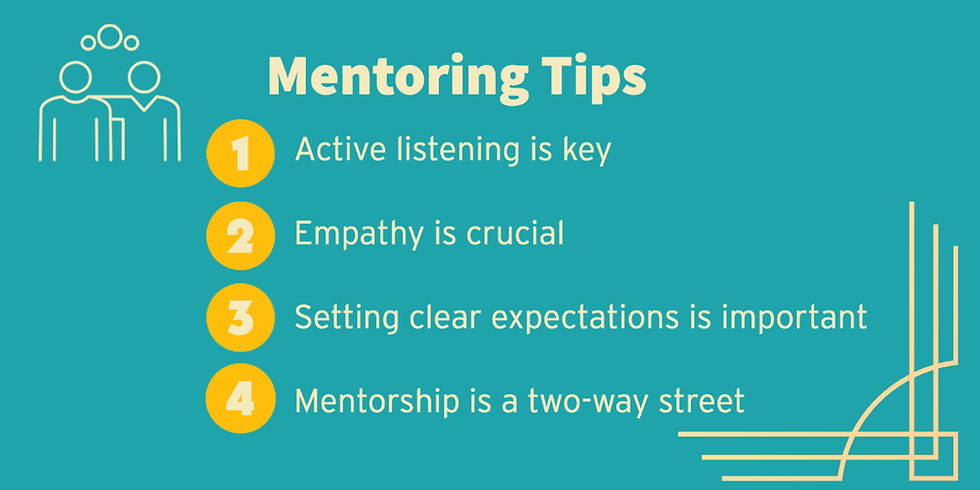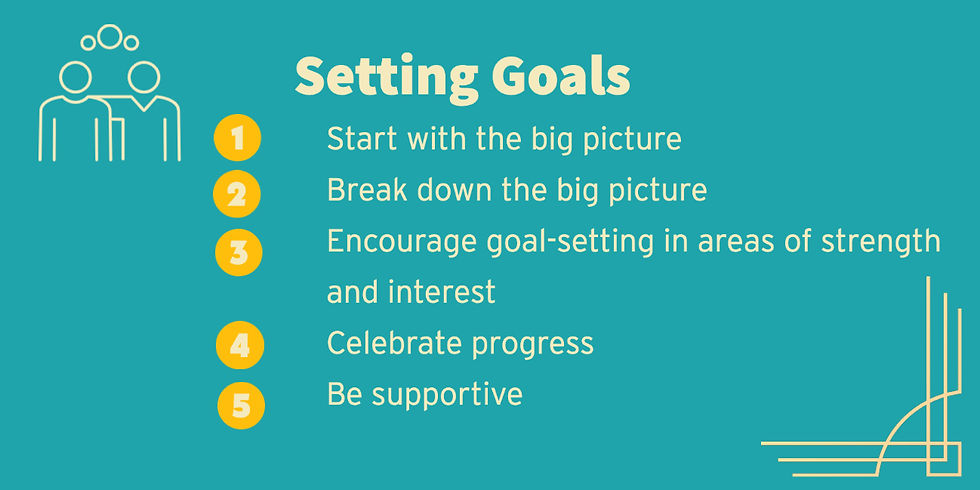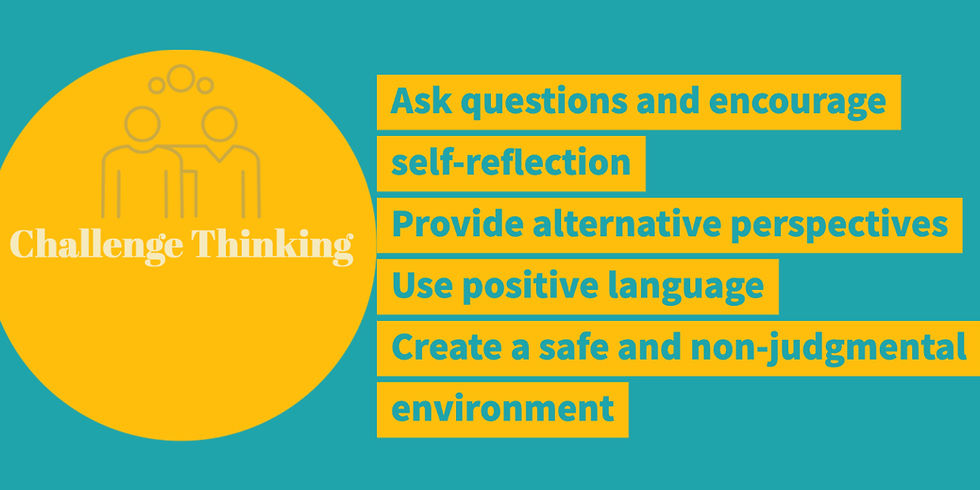17 February 2023 | Jennifer Parker

Photo Credit: Broken Hill RSL, Broken Hill Sea Scouts
Mentoring has been an incredible personal growth journey for me, and I've learned so much along the way that has helped me become a better mentor.
Reflecting on my 21-year career with the Royal Australian Navy, I can say with certainty that one of the most fulfilling aspects of my journey has been the opportunity to mentor those following in my footsteps. With some time off following a busy deployment, I took the opportunity to reflect on what makes mentoring so rewarding for me and to share my thoughts on some of the key considerations for being an effective mentor.
Mentoring has been an incredible personal growth journey for me, and I've learned so much along the way that has helped me become a better mentor. From listening actively and encouraging self-reflection, to creating a safe and non-judgmental environment, these lessons have made a significant impact on my mentorship style.
Formal v Informal Mentoring
In the end, the best approach to mentoring depends on the individual's needs and goals.
Mentoring can take many forms, but often it is broken down into concepts of formal and informal mentoring. Formal mentoring is all about structure and is generally part of a development program. This type of mentoring involves a specific mentor-mentee match, set goals, and expectations. Informal mentoring, on the other hand, is a more relaxed approach and can happen organically through relationships formed at work or in your personal network.
In the beginning of my career, I was convinced that mentoring relationships needed to develop naturally, and I saw little value in formal mentoring programs. But after participating as a mentor in a formal program, I've come to realise the growth and development opportunities they offer.
Formal mentoring has its strengths, like a clear framework for the relationship, and often access to resources and support from the development program, and the chance to be paired with a mentor who has specific expertise or experience. However, it also has its challenges like a potentially less personal relationship, strict expectations that may not fit your mentee's needs, and in some cases limited flexibility to switch up the mentor-mentee relationship if it's not working.
Conversely, informal mentoring provides more flexibility and a more personal relationship, but may not come with the resources and support found in formal programs. It's important to keep in mind that informal mentoring may not have the same level of accountability and structure as formal mentoring.
In the end, the best approach to mentoring depends on the individual's needs and goals. Both formal and informal mentoring can provide valuable experiences and benefits, so it's all about finding what works best for the mentee / mentor relationship.
Mentoring Tips

After many years of mentoring in a fast-paced environment, I've learned a few key things that may seem obvious, but they're important enough to be worth mentioning. Here are my thoughts on the most crucial considerations for effective mentoring.
First off, active listening is key. When you're mentoring someone, it's not just about giving advice. It's about truly understanding what the person needs, what their challenges are, and what they hope to achieve. By listening actively, you can provide guidance that's specifically tailored to their situation.
Next, empathy is crucial. When you put yourself in the mentee's shoes and understand their experiences, emotions, and perspectives, it builds trust and a strong mentor-mentee relationship. It also creates a safe and non-judgmental space for them to open up and be themselves.
Setting clear expectations is also important. From the get-go, make sure you both agree on what the mentorship will look like, including how often you'll meet and what type of support will be provided. This keeps both of you on the same page and helps the mentorship stay productive.
Finally, mentorship is a two-way street. While the mentor provides guidance and support, the mentee also has a big role to play in their own growth and development. Encourage them to take ownership, set goals, and hold themselves accountable.
Setting Goals with your Mentee

When it comes to goal setting in a formal mentoring setting, it's important to approach it in a way that supports your mentee without coming across as condescending or rigid. Setting goals is crucial for providing direction, motivation, and a way to track progress, but it can sometimes be a tricky task. Here are some tips to guide your mentee through the goal setting process and help them set meaningful and attainable goals.
Start with the big picture: Encourage your mentee to think about their overall aspirations and what they want to achieve in the long term. This will provide a foundation for setting more specific and short-term goals.
Break down the big picture: Once your mentee has a clear sense of their long-term aspirations, help them break it down into smaller, more manageable goals. For example, if their long-term goal is to take on a specific position or role, short-term goals could include completing relevant training or taking on additional responsibilities at work.
Encourage goal-setting in areas of strength and interest: Help your mentee identify their strengths and areas of interest and encourage them to set goals in these areas. This will increase their motivation and likelihood of success.
Celebrate progress: Celebrating progress and small victories along the way is essential for keeping your mentee motivated and engaged. Recognise their achievements, no matter how small, and help them see the progress they are making towards their long-term goals.
Be supportive: Finally, be there to support your mentee throughout the goal-setting process and as they work towards their goals. Encourage them, provide guidance, and offer a sounding board as needed.
Challenging your Mentees Biases

Many of us have limiting beliefs and patterns of thought that can hold us back and prevent us from achieving our full potential.
As a mentor, it's also important to be aware of the impact that your mentee's pre-existing thinking can have on their goals and overall growth. Many of us have limiting beliefs and patterns of thought that can hold us back and prevent us from achieving our full potential.
For example, a mentee may have a belief that they're not capable of achieving a certain level of success, or that their goals are unrealistic. These beliefs can be deeply ingrained and difficult to change, but as a mentor, you can help your mentee challenge and overcome them. Encourage them to question their limiting beliefs, reframe negative thought patterns, and focus on what they can control and do to achieve their goals.
Another challenge related to pre-existing thinking is a lack of self-awareness. Some mentees may not be aware of their own biases and limitations, and these can impact their ability to achieve their goals. Encourage your mentee to take a step back, reflect on their thinking and behavior, and seek out opportunities for personal and professional growth.
Challenging thinking in a Supportive Fashion
Challenging a mentee's thinking in a supportive fashion can be a delicate balance, but it's an important part of the mentorship process. Here are a few tips for effectively challenging thinking in a supportive way:
Ask questions and encourage self-reflection: Encourage your mentee to think critically about their thoughts, beliefs, and behaviors. Ask questions that help them see their thoughts from different perspectives and challenge their limiting beliefs.
Provide alternative perspectives: Share your own experiences, perspectives, and knowledge to help your mentee expand their thinking and challenge their beliefs. This can help them see things in a new light and gain a more comprehensive understanding of a situation.
Use positive language: When challenging a mentee's thinking, it's important to use positive and supportive language. Avoid using negative or critical language, and instead focus on helping your mentee see the opportunities for growth and improvement.
Create a safe and non-judgmental environment: Ensure that your mentee feels comfortable and safe when discussing their thoughts and beliefs. A supportive and non-judgmental environment will encourage open and honest conversation and help your mentee feel more confident and secure in challenging their own thinking
Knowing when it’s time for your Mentee to move on
As a mentor, it's important to recognise this change and be there to support your mentee as they move forward.
As a mentor, it's important to recognise when it's time for your mentee to move on and take the next steps on their own. This can be a difficult transition for both you and your mentee, but it's also a natural part of the mentorship process and a sign of growth and success.
One indicator that your mentee is ready to move on is when they have achieved their goals and are ready for new challenges. In this case, it's time to celebrate their achievements, reflect on what they've learned, and help them identify their next steps. By providing a supportive and encouraging environment, you'll be helping them take the next steps towards further growth and success.
Another indicator that it's time to move on is when your mentee has outgrown the mentorship relationship. This can happen when they have gained the skills, knowledge, and confidence they need to succeed on their own. As a mentor, it's important to recognise this change and be there to support your mentee as they move forward.
By embracing the mentorship opportunities available to us, we have the ability to make a positive impact in the lives of others and ultimately, leave a lasting legacy.
Mentoring is a truly enriching experience that brings forth a multitude of benefits for both the mentor and mentee. It provides a platform to offer guidance, encouragement, and support to those in your organisation, while also serving as an opportunity for personal growth and self-discovery. Effective mentoring can impact an individual's career trajectory, foster a positive work culture, and ultimately contribute to the success of the organisation. By embracing the mentorship opportunities available to us, we have the ability to make a positive impact in the lives of others and ultimately, leave a lasting legacy.
Comments